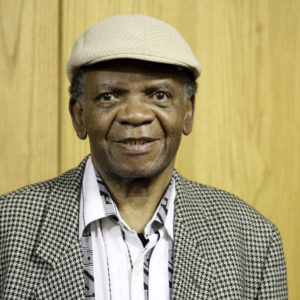From a feature in Backstage
“During apartheid we saw many white people flocking to black theatre because they felt guilty and wanted to show everyone they were against apartheid.” So asserts Selaelo Maredi, a black South African playwright-actor-director. “Now that apartheid no longer exists, the whites don’t feel guilty and don’t come to black theatre either. As a matter of fact, most white people in South Africa would rather see a bad white play than a good black one, even in their own community theatres. Integrated audiences are rare and mixed casts even less common.”
The son of a department store salesman, Maredi attended and ultimately graduated from an industrial school, where he was trained to be a tailor. The problem, says Maredi, was that “there were no jobs for tailors who were black. It was a job for whites only. I had spent my own money and four years in a school for no purpose. It made no sense. But then nothing about apartheid made sense. To this day, I can’t look at a sewing machine.”
Theatre became for Maredi a way to express political rage. More important, it was an extension of his storytelling roots. “Both my grandfathers were terrific storytellers,” he reports. “Storytelling is the backbone of all of my plays.”
In 1971 Maredi forged the Johannesburg-based Experimental Theatre Workshop, the first integrated theatre company in South Africa. As he tells it, this was a mixed bag experience.
“The majority of the actors were white,” he recalls. “It was the ‘in’ thing for many white actors and the director was white?a man who liked to do sensitivity exercises.” He pauses, “In one of these exercises we’d all walk around blindfolded and find a partner and touch him all over to discover what he felt like. Still blindfolded we’d then break up again. The goal was to find your partner. We were supposed to do this on the basis of what he or she felt like.
“The white actors could locate their partners quickly. The black actors, on the other hand, could not,” he continues. “It turned out that the black actors were afraid to touch the white actors and when they finally did, the whites were terribly uncomfortable. The whites didn’t mind touching the black actors, but they didn’t want the black actors to touch them. Out of 65 white actors in the company, five remained.”
| Credit Type | Production | Season |
|---|---|---|
| Playwright | Survival | 1989-90 Season |
| Playwright | Beautiful Things | 2000-01 Season |
| Director | Beautiful Things | 2000-01 Season |
| Actor | Survival | 1989-90 Season |
| Actor | Beautiful Things | 2000-01 Season |


